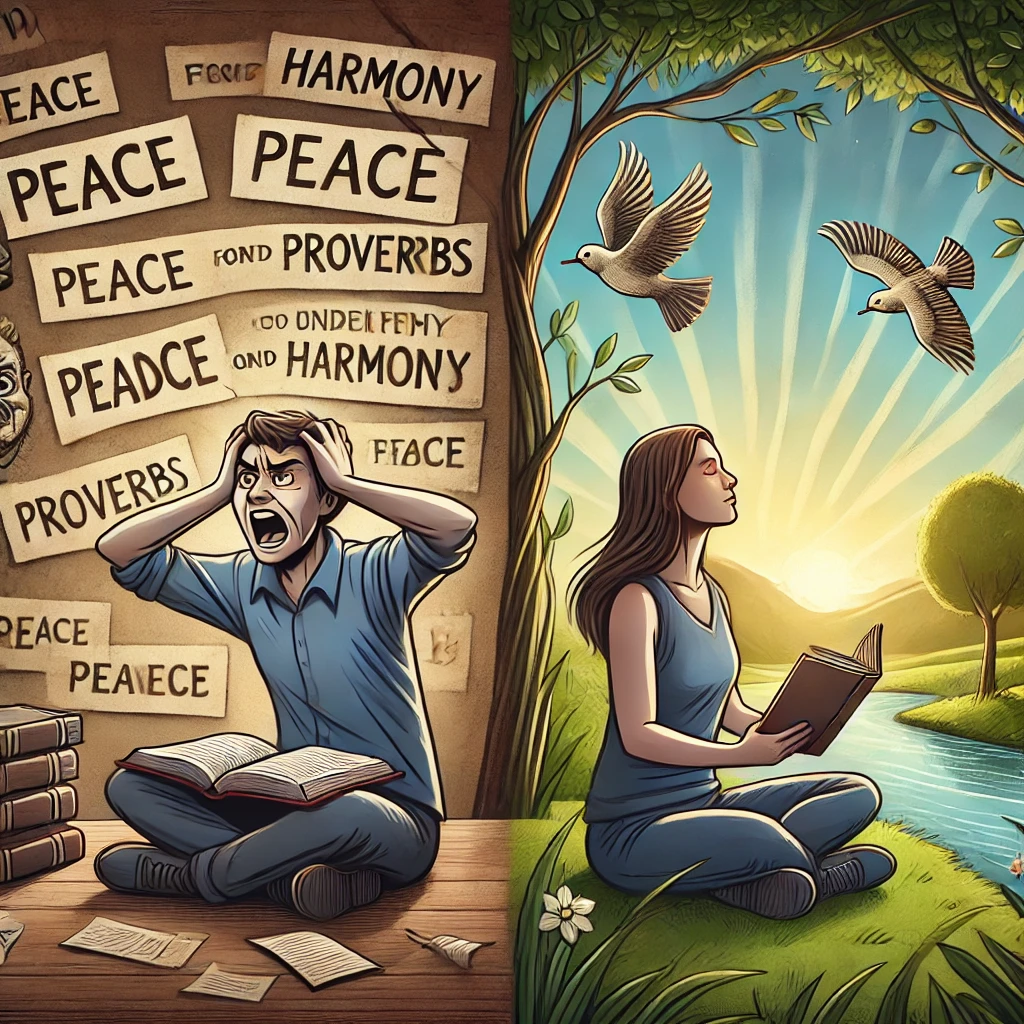Peace and harmony are two of the most sought-after qualities in life, yet they often seem elusive in our fast-paced world. From ancient times, wisdom has been passed down through proverbs, offering guidance on how to achieve inner calm and harmonious relationships. In this article, I will explore some of the most profound proverbs about peace and harmony, discuss their meanings, and answer common questions on this topic.

Understanding Proverbs About Peace and Harmony
Proverbs have always played a crucial role in different cultures, acting as mini-guides to life. These short yet powerful sayings encapsulate deep wisdom that can help us navigate conflicts, embrace serenity, and foster understanding with others. But what do these proverbs truly teach us about achieving peace? And how can we apply them to our modern lives?
What Are Some of the Most Powerful Proverbs About Peace?
Throughout history, different cultures have shared their wisdom through proverbs, emphasizing the importance of peace and harmony. Here are some of the most impactful proverbs:
- “Peace begins with a smile.” — Mother Teresa
- A simple smile can defuse tension, bridge differences, and create a warm, peaceful environment.
- “A gentle answer turns away wrath, but a harsh word stirs up anger.” — Proverbs 15:1 (Bible)
- The way we respond to conflict can either escalate or diffuse a situation. Choosing kindness over harshness leads to peace.
- “The quieter you become, the more you can hear.” — Rumi
- True wisdom and peace often come from listening rather than speaking. Silence can help us find solutions and deeper understanding.
- “Better a dry crust with peace and quiet than a house full of feasting, with strife.” — Proverbs 17:1 (Bible)
- Wealth and luxury mean little without harmony. Inner peace is more valuable than material riches.
- “If there is righteousness in the heart, there will be beauty in the character. If there is beauty in the character, there will be harmony in the home.” — Chinese Proverb
- Peace begins within and radiates outward. When we cultivate goodness within ourselves, it naturally creates harmony around us.
How Can We Apply These Proverbs in Our Daily Lives?
Understanding proverbs is one thing, but applying their wisdom is where real transformation happens. Here are a few ways we can live out these teachings:
- Practice Active Listening: When conflicts arise, instead of reacting immediately, take a step back and truly listen to the other person.
- Choose Kindness Over Ego: Even when we feel justified in our anger, responding with patience and understanding fosters peace.
- Prioritize Inner Peace: Dedicate time to mindfulness, meditation, or prayer to cultivate serenity within yourself.
- Lead by Example: Being a source of peace in your community or family encourages others to follow suit.
FAQs About Peace and Harmony
Why Is Peace Important in Life?
Peace is essential because it allows us to think clearly, build stronger relationships, and lead fulfilling lives. Without peace, stress and conflict take over, making it difficult to focus on personal growth and happiness.
How Can Proverbs Help Promote Peace?
Proverbs serve as reminders of timeless wisdom. By reflecting on them, we can adjust our behaviors, cultivate patience, and embrace a more peaceful mindset.
Is It Possible to Achieve True Harmony in a Busy World?
Yes! While the world is full of distractions and conflicts, inner peace and harmonious relationships are achievable through conscious effort. Small daily actions like mindfulness, gratitude, and kindness make a big difference.
A Story of Peace and Harmony
A few years ago, I found myself caught in a heated argument with a close friend. Our different perspectives had led to frustration, and the tension between us grew. That night, I came across the proverb, “A gentle answer turns away wrath, but a harsh word stirs up anger.” It struck a chord within me.
Instead of holding onto resentment, I decided to reach out with kindness. I listened to my friend without interrupting, acknowledged their feelings, and responded with understanding. To my surprise, the conversation softened, and we found common ground. That experience taught me that peace is not about winning an argument but about fostering understanding and connection.
Peace and harmony are not just ideals—they are choices we make every day. Through the wisdom of proverbs and conscious effort, we can create a more peaceful world, one small act at a time.
